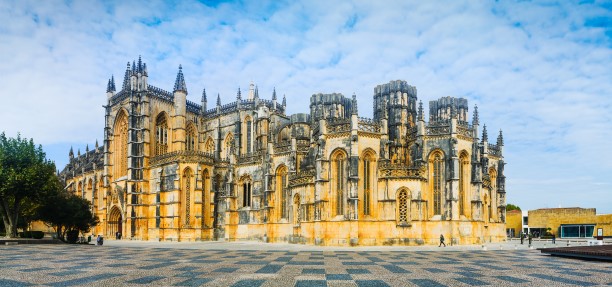The data released by the EU’s official bureau of statics revealed that Portugal welcomed 60.6 million tourists in 2016. A big part of the sector is taken by religious tourism in the country – for instance, the Sanctuary of Fátima welcomed more than 5 million visitors, domestic and international, last year alone, which is a huge share of the total number. It is estimated that 90% of the pilgrims in the country include a visit to Fátima.
The Secretary of State of Tourism, Ana Godinho, stated during an official visit to Brazil that religious tourism in Portugal was actually responsible for attracting 3.3 million visitors from abroad, every single year.
While the importance of Fátima is undeniable, the national religious tourism does not limit itself to the sanctuary, as the country relies on other alluring points – such is the case of the Bom Jesus do Monte Sanctuary, located in the city of Braga. The tourism ministry highlighted that around 75% of Portugal’s heritage sites, which can be visited, have a religious trait.
Despite the absence of official estimates, these facts make a strong case to uphold the idea that religious tourism in Portugal takes between 10% and 14% share of the whole sector.
The pilgrims who visit Fátima every single year come from 100 different nations, turning Fátima into a decisive factor not only for the country’s dimension from a national point of view, but also for its internationalisation.
According to Sanctuary of Fátima office, the biggest group of pilgrims always comes from Spain, given the geographic proximity, followed by Italy, Poland, Brazil, Ukraine and France.
“Oddly enough, there has been an increase in the number of Asian visitors, with an average of five thousand to six thousand South Korean pilgrims.

Local experts expect continuous growth of religious tourism in Portugal, pointing out that 2017 is likely to be an exceptional year. The official body Turismo de Portugal considers that the country has “unique conditions to present itself as a hallmark in religious tourism (having more than 900 years of history), a crossover point that features the world’s most important religions”.
The stance relies on competitiveness factors, such as the Portuguese Way to Santiago de Compostela, the appreciation of the material and immaterial heritage associated with the country’s Jewish legacy, not to mention the remarkable heritage related to religious worship.
